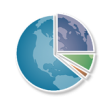 Data is everywhere, but use of data is not. So many of our efforts are centered around making money or getting people to buy more things, and this is understandable; however, there are neglected areas that could actually have a huge impact on the way we live. Jake Porway, a data scientist at The New York Times, has a proposition for you, tentatively called Data Without Borders.
Data is everywhere, but use of data is not. So many of our efforts are centered around making money or getting people to buy more things, and this is understandable; however, there are neglected areas that could actually have a huge impact on the way we live. Jake Porway, a data scientist at The New York Times, has a proposition for you, tentatively called Data Without Borders.
[T]here are lots of NGOs and non-profits out there doing wonderful things for the world, from rehabilitating criminals, to battling hunger, to providing clean drinking water. However, they’re increasingly finding themselves with more and more data about their practices, their clients, and their missions that they don’t have the resources or budgets to analyze. At the same time, the data/dev communities love hacking together weekend projects where we play with new datasets or build helpful scripts, but they usually just culminate in a blog post or some Twitter buzz. Wouldn’t it be rad if we could get these two sides together?
Yes. It would be rad. If you’re an NGO looking for help or a data hacker with a desire to provide some, sign up to the mailing list, and help Jake get the ideas rolling.
[Doing Good With Data via @ireneros]


Great initiative. Count me in.
great idea. but have concerns about its title. How about Data for Humanity, like existing Architecture for Humanity. Data without borders doesn’t make sense compared to doctors, engineers sans frontiers, especially in the age of the cloud. my 2 cents
My experience with non-profits, both on boards with several and as a consultant to several others, is that with the exception of those responsible for fund-raising, few even realize *what* can be achieved with analytics. Most are so busy with day-to-day operations, they don’t come up for air long enough to dream about how their operations can improve with advanced analytics. Also, many operations have the mindset the human capital (i.e., volunteers) is easier and cheaper to marshall than working with data.
As with any other field, it will take visionaries to break through first before we see change here. There are plenty of analytics professionals willing to help, I’m sure.
Great idea — and something actually worth investing my free time in.
Hi Jake,
This is a fine idea! However, in 2008 some colleagues and I started a group devoted to this idea – it is called Statistics Without Borders (or SWB). While SWB is officially affiliated with the American Statistical Association (or ASA), one does not have to be a member of the ASA to join SWB and participate in SWB activities. Anyone interested in these activities can join SWB by visiting the organization’s website (http://community.amstat.org/AMSTAT/StatisticsWithoutBorders/Home/Default.aspx) and clicking on the appropriate link. In addition to adding new members with fresh ideas, SWB is also constantly looking for appropriate projects for its members. NGOs and other organizations involved in not for profit projects that need assistance with various aspects of data analysis (including data collection, analysis, presentation, interpretation, etc.) can contact me or other officers of SWB for more details.
I hope this is helpful. I look forward to hearing from you and other readers.
Sincerely,
Jim
James J. Cochran
Bank of Ruston Barnes, Thompson, & Thurmon Endowed Research Professor
Past Chair, Statistics Without Borders
Editor-in-Chief, Wiley Encyclopedia of Operations Research and Management Science
Program Chair, First International Conference for Health Statistics in the Pacific Islands
Editor-in-Chief, INFORMS Transactions on Education
Department of Marketing and Analysis
College of Business
Louisiana Tech University
Ruston LA USA 71272
The idea is in principle good, but i would not trust anything running out of gmail servers as they have no server policy on emails, thus confidentiality and running a free analysis also for who knows, is not part of my ethics. The fact that NGO dont share their data is marginally linked to their lack of resources, normally they operate in sensitive areas and they just not as green as we may think. In particulra i recall the State Dept running a huge media campaign against medicine sans frontier and emergency in Afghanistan. Agreable under certain aspects, but so was the work of Emergency and Medicine san frontier.